Minister urged to exempt the UK's battlefield allies from deportation to Rwanda
- Published
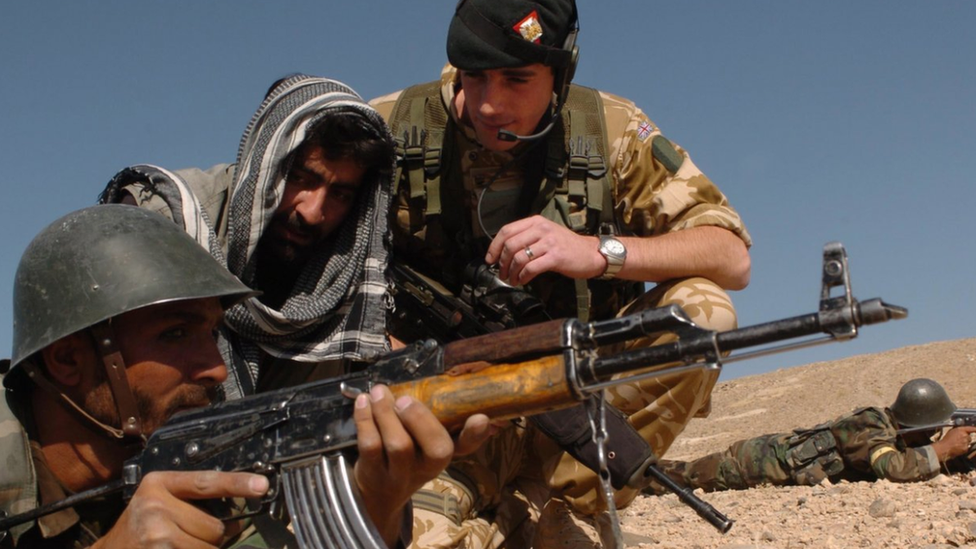
A former chief of the defence staff has called for battlefield allies who later flee to the UK to be exempt from deportation to Rwanda.
Lord Stirrup backed changes to the Safety of Rwanda Bill as the House of Lords continued scrutiny of the plans.
The bill seeks to send some asylum seekers arriving in the UK to the east African country on a one-way flight.
Peers also want exemptions for victims of human trafficking and modern slavery.
Ex-armed forces chief Lord Stirrup said allies should be excluded from the deportation scheme, such as the Afghans who supported UK military operations against the Taliban.
The crossbencher said: "Surely, at the very least, those who have put their safety and indeed their very lives on the line in support of this country deserve to fall into that category."
Lord Stirrup added "global Britain" needed to "be seen as trustworthy" and sending allies seeking sanctuary in the UK to Rwanda may hinder that.
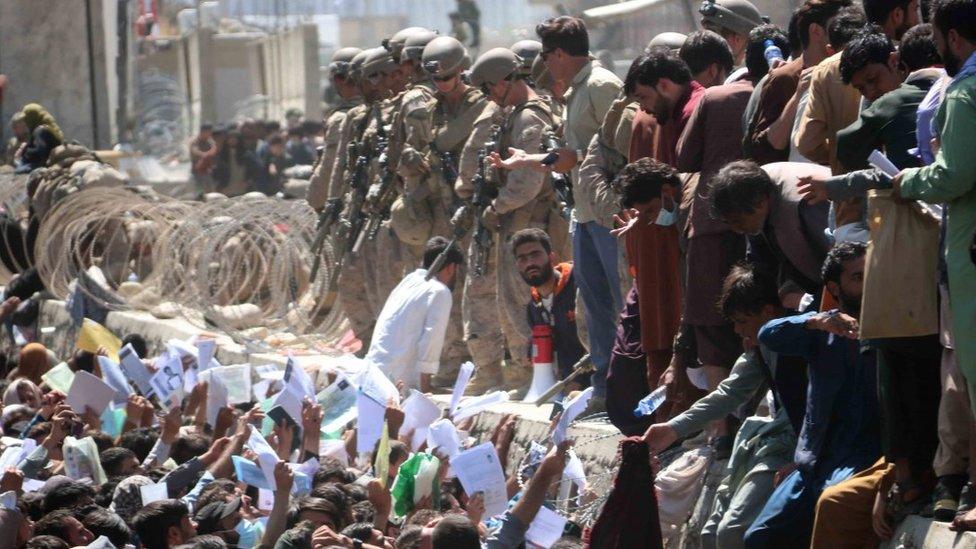
Afghans struggle to show their credentials to flee the country outside Kabul International Airport, Afghanistan, 26 August 2021
Lord Browne of Ladyton listed examples of such allies who he said would be at risk of deportation in the draft law.
An Afghan pilot who flew in 30 combat missions against the Taliban, but could not access a safe route to asylum in the UK, had "already been threatened with deportation to Rwanda", the former Labour minister claimed.
Lord Browne also spoke about an Afghan sniper who joined British troops but "was abandoned at the airfield, and amidst the chaos of our withdrawal from Afghanistan" and eventually made his way to the UK "by small boat".
"As it stands, his reward for serving alongside the UK, in a unit conceived, mentored and funded by His Majesty's government, would be removal to Rwanda," he said.
He urged the government to "at least ensure we do not face the ignominy of seeing those who have risked their lives at our instigation being deported from the country in whose service they have risked serious injury and death".
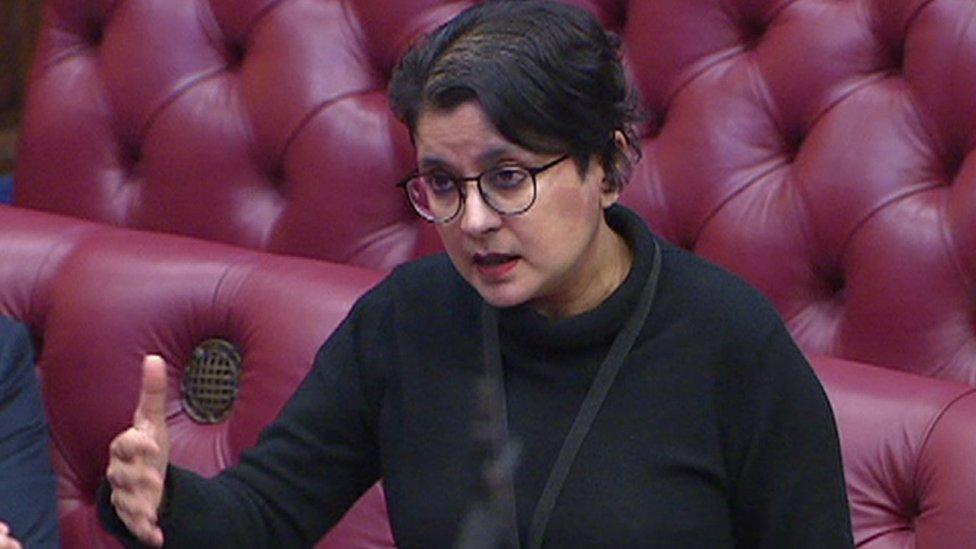
Baroness Chakrabati said deterrents could not work for those who had been trafficked to the UK
Labour peer Baroness Chakrabati added: "We made a promise to them. They've paid for it, many of them, in courage and blood. How dare we?"
She also pointed out that deterrents such as deportation "could never work" for trafficking victims, who "had little or no say in their arrival in the UK in the first place", which she said "highlighted the overall illogic and cruelty" of the Bill.
Home Office minister Lord Sharpe said the government understood its "moral obligation" to help people who had supported the UK armed forces overseas, pointing to legal routes set up to help them, such as the Afghan Relocations and Assistance Policy (Arap).
But he added: "A person who arrives in the UK illegally should not be able to make the UK their home and eventually settle here.
"Regardless of the contribution they have previously made, a person who chooses to come to the UK illegally, particularly if they have a safe and legal route available, should be liable for removal to a safe country."
Related topics
- Published14 February 2024
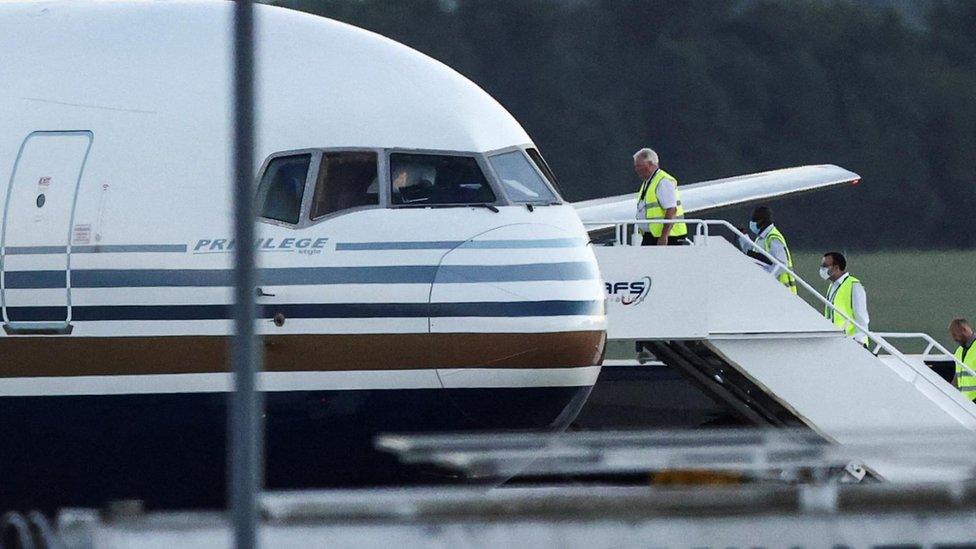
- Published12 February 2024
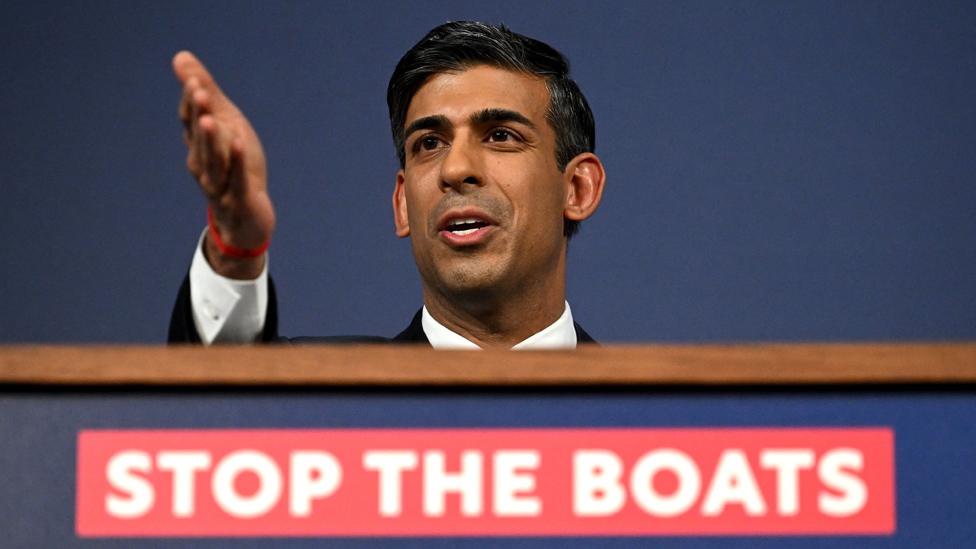
- Published17 January 2024
